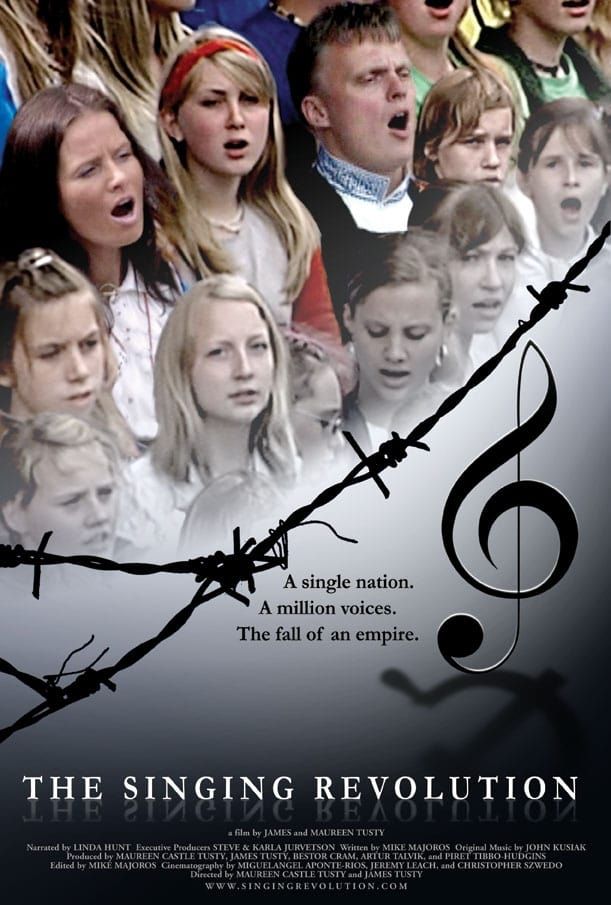
The Singing Revolution
- Release Date
- December 1, 2006
- Director
- James Tusty , Maureen Castle Tusty
- Cast
- Heiki Ahonen , Gustav Ernesaks , Linda Hunt , Mari-Ann Kelam , Tunne Kelam , Mart Laar
- Runtime
- 94
- Main Genre
- Documentary
- Writers
- Mike Majoros , James Tusty , Maureen Castle Tusty
- Tagline
- A single nation. A million voices. The fall of an empire.
Summary
A small country with a large and rich history, the Republic of Estonia is one of the three Baltic countries, along with Lithuania and Latvia, to have suffered greatly during the Soviet and Nazi aggressions of the 20th century. A Baltic Sea gateway into Russia, Estonia survived hundreds of years of invading forces who coveted the land. But after finally establishing themselves as an independent European State in 1918, it was the waves of Soviet and Nazi occupations that nearly destroyed them. Yet a 100 year-old tradition, which was founded as a symbol of Estonia's desire for independence, would emerge once again as a national symbol to a rising independence movement right under the noses of the Soviets. The Song Festival, "Laulupidu", founded in 1869, would keep hope alive during the entire occupation. In 1969, 30,000 singers took the stage to sing one exceptional song -- an extraordinary act of non-violent resistance as Estonians raised their voices together as one. Forbidden to sing anything other than Soviet propaganda songs, the choir and the crowds rang out as they sang "Land of My Fathers, Land that I Love" with lyrics from a well-known 100 year-old Estonian poem. All Soviet attempts to stop the singing failed. This one act alone would re-energize a decades-long fight against the oppression of the Soviet regime. The Singing Revolution was a movement which would, in the last days, pave the way to bringing the Soviet Union to their knees, and Estonians to their feet. After nearly fifty years of murder, torture, deportation, and ultimately a cultural genocide by the Soviet system, the massive power of a nation dedicated to its own independence would alter the course of history. "The Singing Revolution" chronicles Estonia's non-violent march toward freedom. From the 1939 secret (and illegal) protocols of the Molotov-Rippentrop pact between Stalin and Hitler that would ignite World War II, to the Siberian Gulag and the Estonian underground resistance known as the Forest Brothers, "The Singing Revolution" stands as a tribute to a people whose spirit as a free nation was kept alive under astonishing circumstances.
